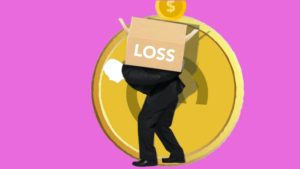If you find yourself in unwanted debt due to being unable to make your loan repayments, or for other reasons, it can be an extremely stressful time. You may become worried about how you will support yourself or your family financially.
The main priority is to stay calm and don’t be afraid to seek financial advice from a specialist. There are non-profit credit counselors, bankruptcy attorneys, or legal aid centers that can help you find out more about your options and plan for a better and brighter financial future.
Key Points:
- If you are struggling to pay off your debts, you should sit down and prioritize which should be paid off first.
- Only 14% of Americans that take out payday loans can afford to pay them back fully and as agreed.
- 25% of loans are rolled over, meaning borrowers defer paying off their debt.
- Those most important are those which declare collateral in the contract, and those with high APR.
- You should plan ahead by either creating a manual budget or using a budgeting app such as Mint.
- You could approach your loved one or employer for financial assistance, such as through a personal loan or a cash advance.

How Should I Prioritize My Debts?
It can feel overwhelming trying to sort out your debts. It’s important to know which ones you should pay first. Then you can make a plan to repay them.
Prioritizing your debts may help give you peace of mind and will definitely help the repayment period go more smoothly. This doesn’t necessarily mean clearing those with the highest interest rates first!
Firstly – Make A List!
To start addressing your debt, write it all down, clearly laying out everything that you owe. Make sure to include everything from the biggest to smallest debts, including any money you may have borrowed from family or friends.
Then you can begin to categorize them according to their urgency. Your list will go from the most urgent debts to lower-priority debts. This may seem like a simple step, however being organized in this way can allow for a smoother process in resolving your debts.
Which Debts Are More Urgent?
The most urgent debts are the ones that could escalate through legal action. These situations can lead to serious consequences, including wage garnishments, asset seizures and if you are not meeting your most critical debt repayments, you will end up in court.
Urgent debts of this level usually require extra help. Immediate action is crucial to avoid further legal consequences and protect your financial well-being.
What Are Other High-Priority Debts?
High-priority debts include any that will largely impact your life if you fail to deal with them. The result of failing to pay these debts could lead to eviction or your home being repossessed, gas or electricity being shut off, or losing your means of earning.
These debts are critical, and if you are struggling to meet payments, you should seek help. If you talk to your lender, you may be able to arrange a payment schedule you can manage.
What Are Low Priority Debts?
These are the debts that aren’t immediately going to cause significant damage. However, they still require your attention! These debts can include unsecured loans, credit cards, overdrafts, store cards, student loans, friends and family or a secured loan where the item isn’t essential.
You should contact the companies to see if you can freeze the debt so you can focus on your priority debts. It’s essential to communicate clearly with your lender, and you may be able to arrange a more affordable payment plan, also known as an ‘arrangement to pay.’
What Is The Best Way To Deal With My Debts?
If you do have unwanted debt collecting, it is important to get proactive and start dealing with your debt as soon as possible! Budget in a way that works for you, speak to a professional who will be able to help or you can speak to non-profit credit counselors, bankruptcy attorneys, and legal aid centers for help.
Never ignore your debt. If you have a lot of debt on the go, don’t take out high-cost loans or bad credit loans. They can come with high-interest rates and contribute to the cycle of debt.

What Will Happen If I Can’t Repay My Debts?
If you realize that you will be unable to afford a scheduled loan repayment, you should immediately contact your lender. Your lender will try to find an agreement that makes it feasible for you to repay the loan. You may be able to agree to a more affordable repayment plan.
In certain situations where you are unable to repay your loan, claiming bankruptcy may be a relevant possibility. Declaring bankruptcy should always be discussed with a professional.